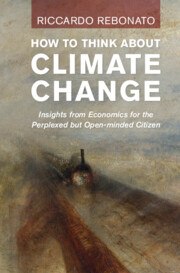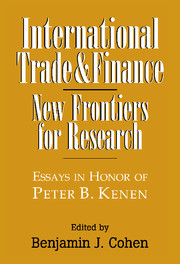How To Think About Climate Change
Caught in the crossfire between climate deniers and catastrophists, the intelligent layperson is understandably bewildered when faced with the complexity of climate change. How To Think About Climate Change shows that economics provides not just a suitable, but an indispensable perspective to understand the root causes of the climate-change problem: scarcity of resources, externalities and free riding. Riccardo Rebonato argues that there are no silver bullets or easy solutions. However, he shows that the new-generation economics models offer a radically different insight about our best course of action from what most early models recommended – in particular, they suggest that fast and large-scale climate action can now be justified as the most cost-effective strategy without requiring the 'infinite altruism' of earlier models. Given the conceptual tools provided in this book, readers can decide whether they agree with these conclusions – and, if they do, what the most effective courses of action are.
- Provides introduction to relatively advanced concepts in the economics of climate change
- Provides conceptual tools rather than ready-made conclusions allowing the reader to come to their own conclusions
- Draws on interdisciplinary treatment allowing the reader to appreciate the complexity of the problem from different angles
Reviews & endorsements
'Riccardo Rebonato has done it again! Notwithstanding its humble title, his latest book is filled with rich insights from the interface of economics and climate science, for both the concerned citizen and the seasoned expert. It's all there: the economics and the climate science, the facts and the models, the costs and the benefits. Rebonato offers uniquely-informed economic insights on mitigation, adaptation, new technologies, and open questions.' Francis X. Diebold, Professor of Economics, Finance and Statistics, University of Pennsylvania
'Anthropogenic climate change is a market failure, and its solution will require close collaboration between physicists and economists. Professor Rebonato's unique background as a trained physicist and a world-renowned finance expert shines through in this wonderful book, making it one of the most authoritative treatments of this subject possible.' Marcos Lopez de Prado, Global Head of Quantitative R&D at the Abu Dhabi Investment Authority, and MIT Connection Science Fellow
'Riccardo Rebonato is a well-known practitioner, author, and economist. He is celebrated for his insightful contributions to financial engineering, economic modeling, and climate change discourse, habitually offering fresh perspectives on complex global challenges. How To Think About Climate Change empowers readers to confront the climate crisis with renewed understanding and purpose. Rebonato's book is essential for anyone seeking an enlightened and actionable perspective on one of the most pressing issues of our time.' Alexander Lipton, ADIA Lab
'As a long-time environmental reviewer, I found this volume on climate change one of the most extraordinary books to come to my attention. It is directed to the 'perplexed but open-minded citizen' and does so in an engaging style and with wide-spaced print for easy reading. It deals with complex issues involved with climate change with a clarity and depth that can benefit the most advanced scientist or policy expert. … Essential.' F. T. Manheim, Choice
Product details
January 2024Hardback
9781009405003
360 pages
235 × 159 × 24 mm
0.63kg
Available
Table of Contents
- 1. Introduction
- 2. The facts on the ground
- 3. Deep changes
- 4. How economists think about climate change
- 5. How economists look at choice
- 6. How utility theory works
- 7. From choice to utility
- 8. What are integrated assessment models?
- 9. How much should we care about future generations? 10. Growth
- 11. Population
- 12. So, what should we do? 13. Taking the dirty stuff out
- 14 The role of nuclear energy
- 15. Constraints
- 16. The plumbing
- 17. Unfinished business.








